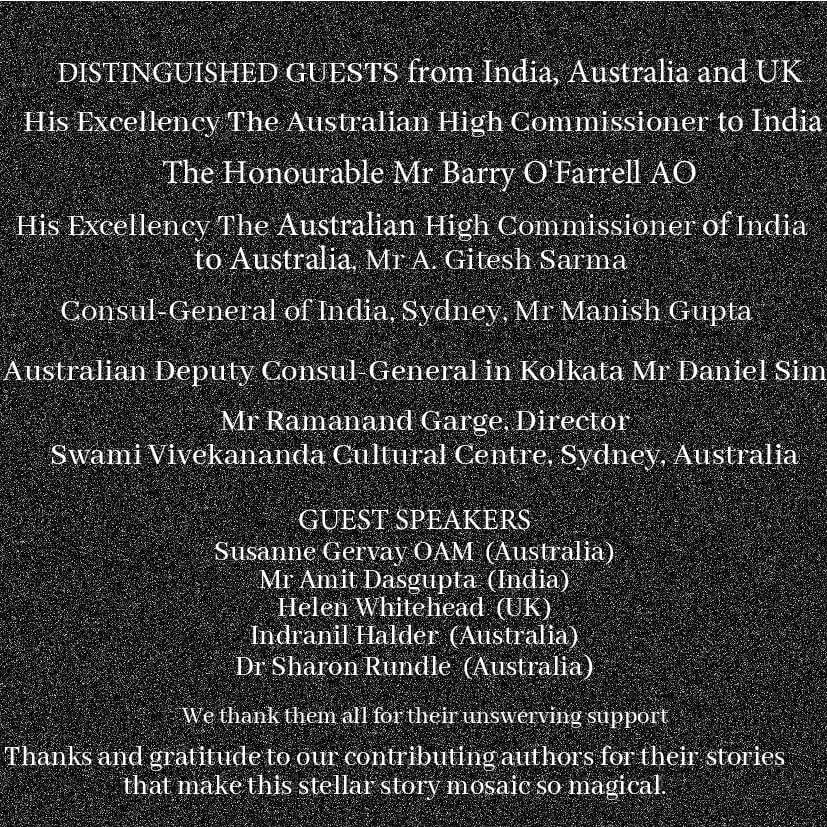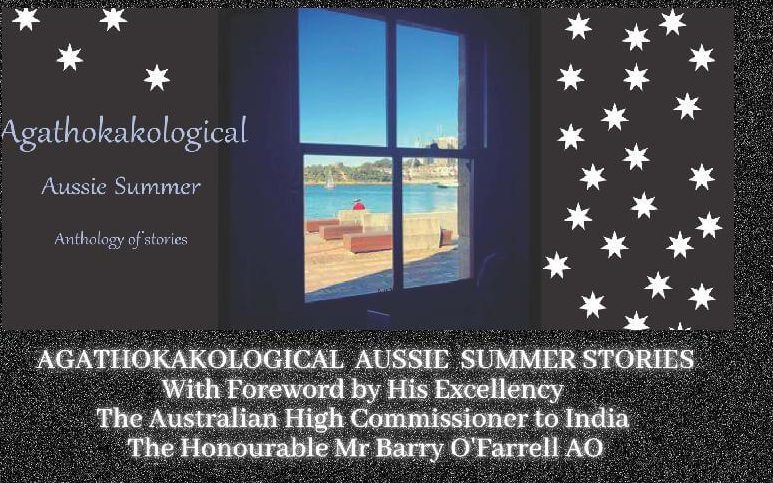Reading Time: 3 minutes
An anthology of short stories, Agathokakological Aussie Summer, bridges the Bengali diaspora in Australia and Indian cities. A preview for Different Truths.
Words can weave magic, words can transcend borders and geographical barriers, instilling a bond that even pandemic restrictions cannot challenge. Thus, was born from the power of words, a unique project bringing Australia and India closer during the COVID-19 Pandemic. The Agathokakological Aussie Summer, an anthology of short stories flipping between the Australian shores and Indian cities, particularly with Bengali diaspora and their experiences roped in, will be launched on 2nd December.
The mosaic is forwarded and will be released by Australian High Commissioner to India, Hon’ble Barry O’Farrell AO and introduced by Indian Consul General in Sydney, Manish Gupta. The anthology has stories by well-known authors from different parts of the globe.
The mosaic is forwarded and will be released by Australian High Commissioner to India, Hon’ble Barry O’Farrell AO and introduced by Indian Consul General in Sydney, Manish Gupta. The anthology has stories by well-known authors from different parts of the globe. The only South-Asian author chosen from India is author, poet, and entrepreneur Saheli Mitra (author of internationally launched Lost Words and co-author of Penguin launched People Called Kolkata), who resides in Kolkata. Her story ‘Unborn,’ traces the deep love and passion between a Bengali man in Australia and a woman who resides in Kolkata, sending a strong message of how love can conquer everything, maybe even the anxieties of a Pandemic or death of an unborn child!
Edited by Dr Sharon Rundle of the Institute of Professional Editors (IPEd), Australia and Chair, of prestigious UTS Writers’ Alumni and facilitated by Indranil Halder, passionate Bengali entrepreneur and fashion icon of Australia, the book traces the literary influence of Bengal in Australia. Many of the authors are Bengalis residing in different parts of Australia. Bengalis of India have had contact with Australia for hundreds of years. In 1797, due to a shipwreck at Ninety Mile Beach in Victoria, five British and 12 Bengali seamen swam ashore. Bengalis made history by stepping foot in the Australian soil to begin a robust trading relationship between Bengal and new Australian colonies. Bengal Rum and livestock from Bengal nourished the Australian colonies.

The recent discovery of a 19th-century Bengali book in the gold mining town of Broken Hill in New South Wales confirmed the fact that Bengalis lived in Australia, but this was forgotten until now. The literary influence between the two nations is exemplary and books by Indian writers are nothing new to Australia
The recent discovery of a 19th-century Bengali book in the gold mining town of Broken Hill in New South Wales confirmed the fact that Bengalis lived in Australia, but this was forgotten until now. The literary influence between the two nations is exemplary and books by Indian writers are nothing new to Australia as researcher Samia Khatun explains in The Australianama: The South Asian Odyssey in Australia, how a book from Chitpur Road, Kolkata gave company to Bengalis in Australia during the first colonial settlement. Samia stumbled upon this book of Bengali poetry collection mistaken as the Koran in a nineteenth-century mosque in the gold mining town of Broken Hill, New South Wales.
This Indian connection to Australia is again celebrated by ex-Indian Consul General, Amit Dasgupta. As he said goodbye to Sydney at the NSW Parliament House Jubilee Room, his book: The House and Other Stories, embraced Bengalis in Sydney with a line that says, ‘They were also members of the Durga Pujo committee and in charge of the most important department, food, because it is only food, festivals and football that unite Bengalis!’
Take for example Sydney-based architectural historian, author, and photographer Joanne Taylor’s thesis, ‘The Great Houses of Kolkata 1750 – 2006.’ She celebrates the ‘strange, hybrid mansions’ of North Kolkata in her book The Forgotten Palaces of Calcutta. While Sydney-based author Avijit Sarkar’s book, A Turn of Events is a collection of fourteen short stories highlighting the world of Indian migrants to Australia.
In 2001, late South African-Australian novelist Arthur Bryce Courtenay named a fictional character in his book, Four Fires, as Karpurika Raychaudhuri.
In Four Fires, the author wrote about the power of love and the triumph of the human spirit against the odds. Karpurika Raychaudhuri created history as it brought the Australia-Bengal relationship closer. And Karpurika became the only Australian Bengali community member whose name is part of Australian literature forever.
In Four Fires, the author wrote about the power of love and the triumph of the human spirit against the odds. Karpurika Raychaudhuri created history as it brought the Australia-Bengal relationship closer. And Karpurika became the only Australian Bengali community member whose name is part of Australian literature forever. So did Neil Grant’s The Honeyman and The Hunter focused on the life in Sundarbans and Anne Benjamin’s Saffron and Silk.
Similarly, it is expected that Agathokakological Aussie Summer will strengthen the bond between Australia and India, particularly Bengal.
Visuals of the context















Saheli Mitra is not the only Indian author from India. Sudipto Lahiri is also another established author from India who contributed. This is a big mistake.